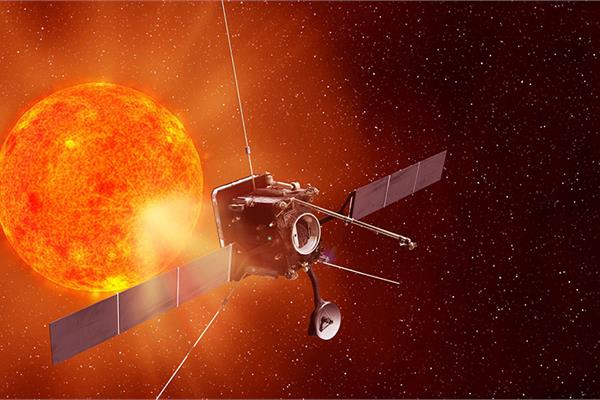
The Airbus built Sun explorer spacecraft Solar Orbiter was successfully launched from Cape Canaveral, Florida on 10th February 2020.
Solar Orbiter spacecraft will study the Sun at unprecedented close proximity - approximately 42 million kilometers, which is a quarter the distance from the star to Earth. Such an extreme temperature and radiation environment, required the Agency to seek and qualify suitable next-generation thermal protection systems for the craft's 3.1m x 2.4m main heatshield.
To provide such a system, ENBIO has been collaborating with ESA and Airbus Defence & Space since 2011, to develop a novel protective CoBlast Skin, called SolarBlack. It is critical that the Skin maintains its thermo-optical properties, despite years of exposure to extreme infra-red and ultraviolet radiation, whilst not shedding material or outgassing vapour, which would risk contaminating Solar Orbiter's highly sensitive instruments. Additionally, the Skin needs to be conductive to avoid the build-up of static charge which might threaten a disruptive or destructive discharge to the craft.
SolarBlack is a CoBlast Skin of black calcium phosphate, which has been applied to the outermost titanium sheet of Solar Orbiter's multi-layered heatshield. It has been deployed via ENBIO's patented CoBlast process, which replaces, in one process step, a metal's natural oxide surface layer with a desired functional Skin - in this case SolarBlack. What makes CoBlast unique is the direct bond produced between the desired Skin and the underlying metal, without a troublesome oxide layer, providing the durability and adhesion required for skin integrity under such extreme conditions. CoBlast is also an environmentally friendly process, requiring no chemical, vacuum or thermal inputs.
SolarBlack has been qualified to meet the demands of this mission and is being specified on an increasingly wide variety of additional applications including sensor internals and heatshields.